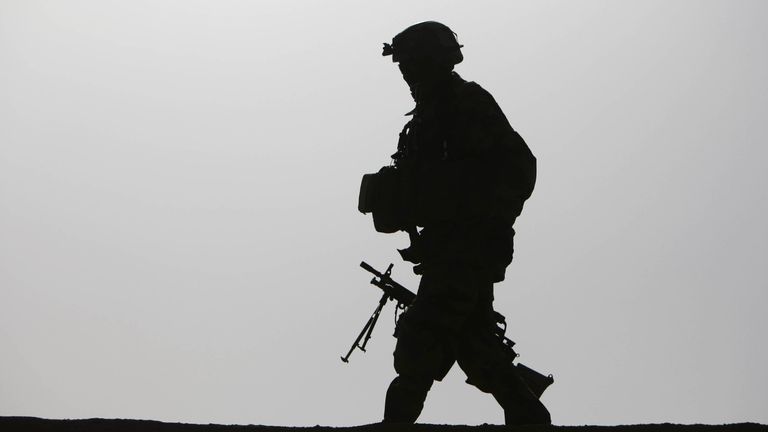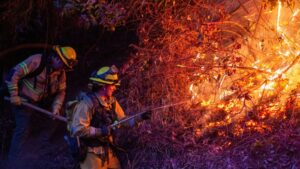Soldiers concerned at time SAS had ‘golden pass to get away with murder’ in Afghanistan, inquiry hears
An inquiry into allegations that the SAS soldiers carried out murders during the war in Afghanistan released evidence from seven special forces witnesses who gave evidence in secret.

Soldiers working within the UK’s special forces discussed concerns that Afghans who posed no threat were being murdered in raids against suspected Taliban insurgents, an inquiry has been told.
One soldier, who was reading operational reports of SAS actions, said in an email in 2011 that they feared that UK special forces seemed “beyond reproach”, with “a golden pass allowing them to get away with murder”.
Another soldier said they were aware of rumours of special forces soldiers using “dropped weapons” – which were munitions allegedly placed next to targets to give the impression they were armed when they were shot.
It was also suggested that the act was known as a “Mr Wolf” – supposedly a reference to the fixer “Winston Wolfe” from the film Pulp Fiction.
The claims come from hundreds of pages of documents detailing evidence given to a public inquiry into alleged war crimes committed by British special forces soldiers in Afghanistan between 2010 and 2013.
The independent inquiry was ordered by the Ministry of Defence (MoD) after the BBC reported claims that SAS soldiers from one squadron had killed 54 people in suspicious circumstances during the war in Afghanistan more than a decade ago.
The inquiry is examining a number of night-time raids carried out by British forces from mid-2010 to mid-2013.
On Wednesday, it released evidence from seven UK special forces (UKSF) witnesses who gave their evidence in secret for national security reasons and cannot be named.
None of the soldiers who gave evidence to the inquiry, which opened in 2023, said they had witnessed any such behaviour themselves.
‘Fighting age males’
One of the soldiers, known only as N1799, told the inquiry they had raised concerns in 2011 about a unit referred to as UKSF1 after having a conversation about its operations with one of its members on a training course.
“During these operations it was said that ‘all fighting age males are killed’ on target regardless of the threat they posed, this included those not holding weapons,” their witness statement said.
“It was also indicated that ‘fighting age males’ were being executed on target, inside compounds, using a variety of methods after they had been restrained. In one case it was mentioned a pillow was put over the head of an individual before being killed with a pistol.”
The soldier said he was also informed that weapons were being “dropped” next to victims “to give the impression that a deceased individual had been armed when shot”, the inquiry heard.
Such a dropped weapon was colloquially known as a “Mr Wolf”, but N1799 stated he had “no idea at all” where the term came from.
Be the first to get Breaking News
Install the Sky News app for free


Read more from Sky News:
Sauna users urged to hydrate after woman suffers heart attack
Boy, 14, stabbed to death on London bus
Counsel to the inquiry Oliver Glasgow KC asked: “When you heard it described as a ‘Mr Wolf’, was that used by one person or by more than one person or can you not remember?”
N1799 replied: “At least two or three people.”
Mr Glasgow continued: “Have you seen the film Pulp Fiction by Quentin Tarantino, where the individual who introduces himself as Mr Wolf says ‘I’m Mr Wolf and I’m here to solve problems’? Do you remember that?
The witness said: “No, I don’t.”
Mr Glasgow said: “Well, it is probably not essential viewing for anyone, but that particular individual in that film, he acts to clear up problems and to make crimes go away, does he not?”
N1799 responded: “Right. I had not put two and two together.”
The inquiry heard that N1799 escalated their concerns to other senior officers who took them seriously.
But, questioned by Mr Glasgow on whether they had any concerns for their own personal wellbeing after making allegations, the witness said: “I did then and I still do now.”
‘Mud-slinging’
Another officer, referred to as N2107, emailed colleagues expressing his disbelief at summaries of operations which suggested detained suspects had been allowed back into compounds where they were then said to have picked up weapons and attempted to attack the unit.
Meanwhile, a special forces commanding officer told the inquiry he believed reporting allegations of murder to his counterpart in another unit may have been seen as “mud-slinging”.
He said there was an “at times fractious and competitive” relationship between his unit and the accused unit.
In one of the hearings, he was asked whether he thought about reporting the allegations to his direct counterpart within the unit, but said it was a “deliberate act” to report up rather than sideway as it may be seen as “mud-slinging”.

British military police have previously conducted several inquiries into allegations of misconduct by forces in Afghanistan, including those made against the SAS.
However, the MoD has said none found enough evidence for prosecutions.
The inquiry’s aim is to ascertain whether there was credible information of extra-judicial killings, whether investigations
by the military police years later into N1799’s concerns were properly conducted, and if unlawful killings were covered up.



